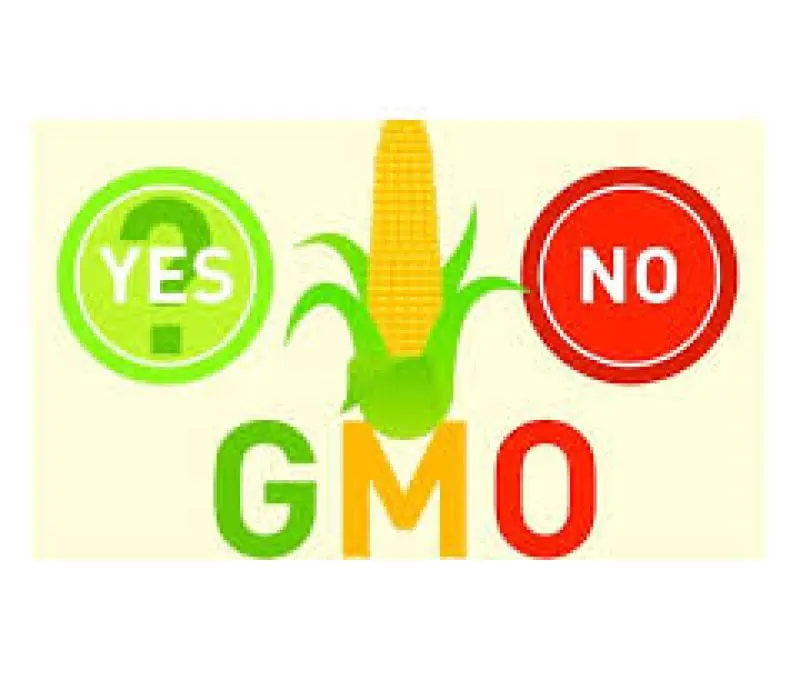The never-ending GMO debate: Pros and cons
The never-ending GMO debate: Pros and cons
Britannica | June 17, 2025
XLinkedInFacebookRedditBlueskyThreads

According to the Genetic Literacy Project, “The most recent data from the International Service for the Acquisition of Agri-biotech Applications (ISAAA) shows that more than 18 million farmers in 29 countries, including 19 developing nations, planted over 190 million hectares (469.5 million acres) of GMO crops in 2019.” The organization stated that a “majority” of European countries and Russia, among other countries, ban the crops. However, most countries that ban the growth of GMO crops allow their import. Europe, for example, imports 30 million tons of corn and soy animal feeds every year, much of which is GM (genetically modified). [58]
Follow the latest news and policy debates on sustainable agriculture, biomedicine, and other ‘disruptive’ innovations. Subscribe to our newsletter.
Pro 1: Genetically modified (GM) crops have been proven safe through testing and use and can even increase the safety of common foods.
…
Pro 2: GM crops lower the price of food and increase nutritional content, helping to alleviate world hunger.
…
Pro 3: Growing GM crops leads to environmental benefits, such as reduced pesticide use, less water waste, and lower carbon emissions.
…
Con 1: GM crops have not been proven safe for human consumption through human clinical trials.
…
Con 2: Tinkering with the genetic makeup of plants may result in changes to the food supply that introduce toxins or trigger allergic reactions.
…
Con 3: Certain GM crops harm the environment through the increased use of toxic herbicides and pesticides.
This is an excerpt. Read the original post here
XLinkedInFacebookRedditBlueskyThreads
 | Videos | More... |

Video: Nuclear energy will destroy us? Global warming is an existential threat? Chemicals are massacring bees? Donate to the Green Industrial Complex!
 | Bees & Pollinators | More... |

GLP podcast: Science journalism is a mess. Here’s how to fix it

Mosquito massacre: Can we safely tackle malaria with a CRISPR gene drive?

Are we facing an ‘Insect Apocalypse’ caused by ‘intensive, industrial’ farming and agricultural chemicals? The media say yes; Science says ‘no’
 | Infographics | More... |

Infographic: Global regulatory and health research agencies on whether glyphosate causes cancer
Does glyphosate—the world's most heavily-used herbicide—pose serious harm to humans? Is it carcinogenic? Those issues are of both legal and ...
 | GMO FAQs | More... |

Why is there controversy over GMO foods but not GMO drugs?
Genetic Literacy Project

How are GMOs labeled around the world?
Genetic Literacy Project

How does genetic engineering differ from conventional breeding?
Genetic Literacy Project
 | GLP Profiles | More... |

Alex Jones: Right-wing conspiracy theorist stokes fear of GMOs, pesticides to sell ‘health supplements’





 Viewpoint — Fact checking MAHA mythmakers: How wellness influencers and RFK, Jr. undermine American science and health
Viewpoint — Fact checking MAHA mythmakers: How wellness influencers and RFK, Jr. undermine American science and health Viewpoint: Video — Big Solar is gobbling up productive agricultural land and hurting farmers yet providing little energy or sustainabilty gains
Viewpoint: Video — Big Solar is gobbling up productive agricultural land and hurting farmers yet providing little energy or sustainabilty gains Fighting deforestation with CO2: Biotechnology breakthrough creates sustainable palm oil alternative for cosmetics
Fighting deforestation with CO2: Biotechnology breakthrough creates sustainable palm oil alternative for cosmetics Trust issues: What happens when therapists use ChatGPT?
Trust issues: What happens when therapists use ChatGPT? 30-year-old tomato line shows genetic resistance to devastating virus
30-year-old tomato line shows genetic resistance to devastating virus California, Washington, Oregon forge immunization alliance to safeguard vaccine access against federal undermining
California, Washington, Oregon forge immunization alliance to safeguard vaccine access against federal undermining The free-range chicken dilemma: Better for birds, but with substantial costs
The free-range chicken dilemma: Better for birds, but with substantial costs ‘You have to treat the brain first’: Rethinking chronic pain with Sanjay Gupta
‘You have to treat the brain first’: Rethinking chronic pain with Sanjay Gupta
